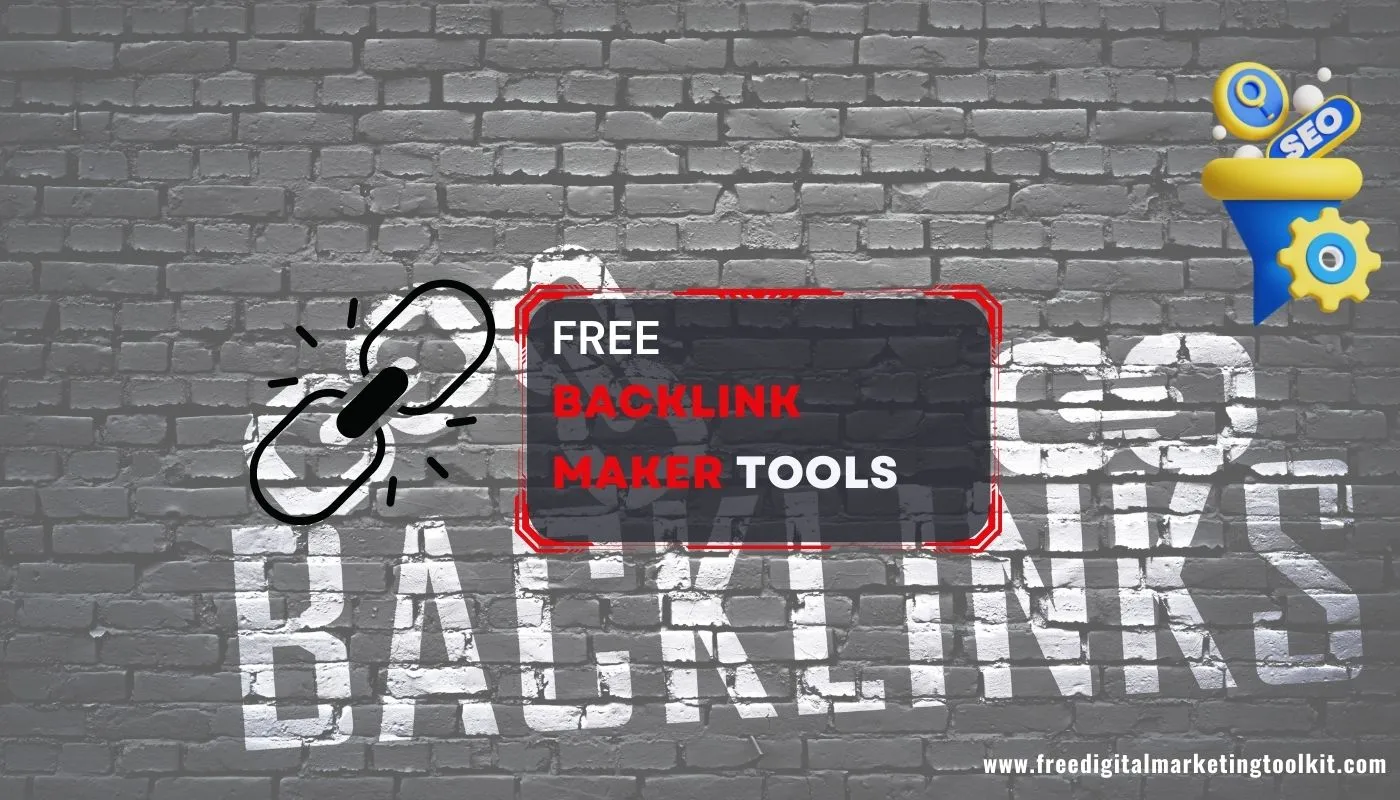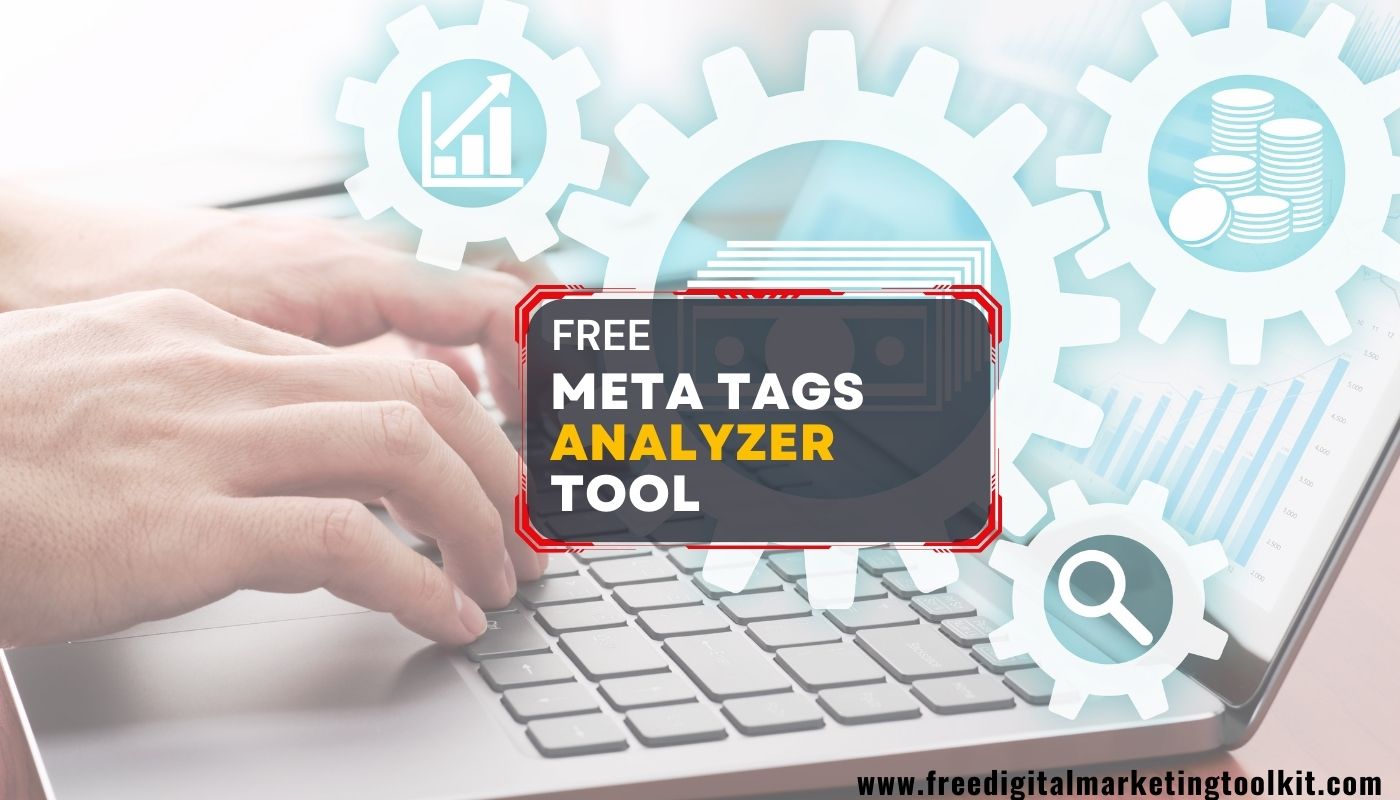
A Meta Tags Generator Tool is a tool or software designed to help website owners or developers generate meta tags for their web pages. Meta tags are snippets of HTML code that provide information about a web page to search engines and website visitors. They are placed in the head section of the HTML document and are not visible on the actual web page.
Meta tags play a crucial role in search engine optimization (SEO) as they provide information about the content of a page, its title, description, keywords, and other relevant details. Search engines use this information to index and rank web pages appropriately in their search results.
More About Meta Tags Generator Tool
A Meta Tag Generator Tool typically allows users to input information such as the page title, description, keywords, author, and other metadata. The tool then generates the corresponding HTML code with the appropriate meta tags based on the provided information. This can save time and ensure that the meta tags are properly formatted and optimized for search engines.
Why are Meta Tags Important For Websites?
Meta tags, residing unseen in your website’s header section, offer search engines a peek into your page’s content and theme. They come in three key flavors:
- Title Tag: Your page’s headline, displayed in search results and browser tabs. Think of it as a captivating movie poster that entices viewers to click.
- Meta Description: A concise summary of your page’s content, appearing under the title in search results. This is your elevator pitch to convince searchers to step inside.
- Meta Keywords: Relevant terms associated with your page, helping search engines understand your content. Choose wisely, for keyword spam is a cardinal sin!
Now, why are these seemingly invisible tags so crucial? Well, optimized meta tags can work wonders for your website:
- Boost Search Engine Rankings: When your meta tags include relevant keywords and accurately reflect your page’s content, search engines take notice. This can propel your website up the search ladder, leading to more organic traffic.
- Attract Click-Worthy Snippets: Enticing titles and clear descriptions in your meta tags create captivating previews in search results. This translates to higher click-through rates, as users are curious to explore what lies behind those compelling snippets.
- Enhanced User Experience: Informative meta tags provide users with a quick understanding of your page’s content, helping them decide if it’s relevant to their search. This leads to a better user experience and potentially lower bounce rates.
The Power of Free Meta Tag Generator Tools:
Convinced of the magic of meta tags? It’s time to unleash the power of free meta tag generator tools! These online wizards take the guesswork out of crafting effective meta tags, offering valuable assistance at every step:
- Keyword Research: Many tools suggest relevant keywords based on your page’s topic or URL, aiding in your keyword selection process.
- Character Length Check: Avoid the pitfalls of exceeding character limits (50-60 for titles, 150-160 for descriptions) with the help of built-in character counters.
- Readability Analysis: Ensure your meta tags are clear and concise with readability score checks, optimizing them for user comprehension.
- Competitor Analysis: Some advanced tools even showcase your competitors’ meta tags, allowing you to analyze their strategies and craft impactful tags of your own.
🚀Use Our Free Meta Tags Generator Tool
How to Use a Free Meta Tags Generator Tool
Now, let’s dive into the practicalities. Here’s a step-by-step guide to using a free meta tag generator tool like a seasoned SEO guru:
- Choose Your Tool: Explore various free meta tag generator options like SEOptimer, SeoSiteCheckup, or Small SEO Tools. Each tool offers different features and functionalities, so pick one that aligns with your needs.
- Enter Your Page Information: Provide the tool with details like your page title, URL, and overall topic. Some tools allow importing content from your website for more accurate tag generation.
- Keyword Selection: Analyze the suggested keywords and choose relevant terms that accurately reflect your page’s content. Avoid keyword stuffing and focus on high-quality, targeted keywords.
- Craft Compelling Title and Description: Use the generated suggestions as a starting point, personalize them to create attention-grabbing titles and clear, concise descriptions. Remember, these are your first impressions in search results, so make them count!
- Optimize and Validate: Check character lengths, ensure readability, and analyze your meta tags for potential keyword redundancy. Most tools offer helpful tips and suggestions for further optimization.
- Implement and Monitor: Once satisfied, implement your optimized meta tags on your website. Remember, SEO is an ongoing journey, so keep track of your website’s performance and adjust your meta tags as needed.
FAQs about Meta Tags Generator Tools
Q: Are free meta tag generator tools reliable?
A: While they can be a helpful starting point, remember that manual optimization and understanding your audience are crucial for truly effective meta tags.
Q: Can I use the same meta tags for all my pages?
A: Absolutely not! Each page needs unique meta tags that accurately reflect its content and target relevant keywords.
Q: Is it okay to use the same keywords in my meta tags and website content?
A: Yes, using some overlap between your meta tags and website content is perfectly acceptable and even recommended. This helps search engines understand the context and relevance of your page. However, avoid simply copying and pasting your content into your meta tags, as this can be seen as keyword stuffing and penalize your ranking.
Q: Should I include my brand name in my meta tags?
A: Including your brand name in your meta titles can be beneficial for brand awareness and recognition. However, prioritize including relevant keywords first, as these have a more direct impact on your search ranking. You can often naturally incorporate your brand name into the title while still maintaining a focus on keywords.
Q: When shouldn’t I use a free meta tag generator?
A: While free tools are a fantastic resource for beginners and occasional use, there are times when they might not be the best option. If you have a complex website with numerous pages requiring highly targeted meta tags, consider investing in a more advanced paid tool. These often offer additional features like competitor analysis, bulk tag generation, and in-depth reporting.
Q: How often should I update my meta tags?
A: There’s no one-size-fits-all answer, but it’s good practice to review and update your meta tags periodically, especially when your website content changes or new relevant keywords emerge. As a general rule, aim to review them at least once every quarter.
Q: Do meta tags impact mobile search results?
A: Yes, meta tags are still relevant for mobile search! Mobile search engines use similar algorithms to desktop search, so optimizing your meta tags for relevant keywords and clear user information can still boost your visibility in mobile search results.
Q: Can I use emojis in my meta tags?
A: While technically possible, using emojis in your meta tags is generally not recommended. Some search engines may not display them correctly, and they can appear cluttered or unprofessional in search results. Stick to clear, concise language for maximum impact.






